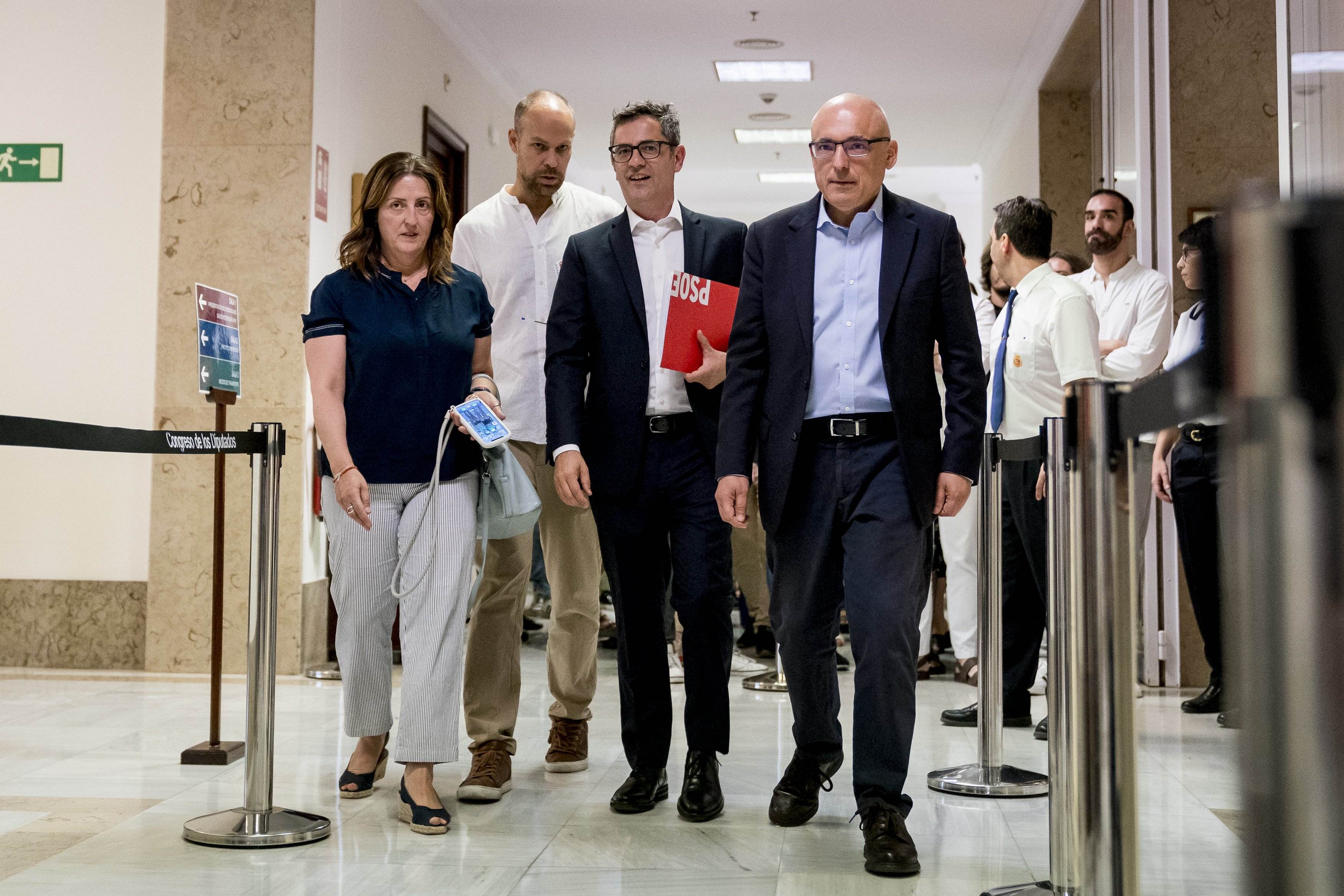"This August of 2023 will be unforgettable". With this affirmation, delivered with a smile, Spain's acting presidency minister, Félix Bolaños, declared holidays over and sleeves rolled up for the task of leading the Socialist (PSOE) negotiations on the difficult first mission of the legislature: forming the Bureau of the Congress of Deputies. Bolaños was accompanied by another experienced hand from the Socialist ranks, veteran of a thousand parliamentary negotiations, Rafael Simancas. Both collected their credentials as MPs this Thursday morning and, after days of telephone contacts, were due to spend the day attempting to thread the needle in meetings - one of them with the Catalan Republican Left (ERC) - to ensure that the so-called "plurinational majority ” is imposed in a week's time in the first decisive vote, and at the same time tying up the speaker's position of the lower house.
The PSOE has compartmentalized the negotiations, first the Bureau and then investiture of a new prime minister. To do this, they are relying on the "success formula" they used during the previous legislature. "It is essential that we are discreet, responsible and cautious", said the minister Bolaños before doing the paperwork formalities of becoming an MP. The Socialists are maintaining an absolute silence so as not to undermine anything, even if that means burying the words spoken just a week ago, when Bolaños himself demanded that ERC and Together for Catalonia (Junts) abandon the "positions of maximums" which, in his opinion, the Catalan pro-independence parties were adopting. Nor did Bolaños want to "place bets" on Meritxell Batet's substitute at the head of the third most important institution in the State. Some Madrid media place the presidency minister himself in the position.
Rufián cedes lead role to Jordà; Junts remains invisible
The longed-for "plurinational majority" is a beast with two essential legs, in its Catalan part. One which is more to the liking of the PSOE (that of ERC) and another with a more bitter taste (Junts). Most of the pro-independence deputies also carried out their formalities in Congress today. Among the ERC entourage made up of four representatives, there was one great absence: Gabriel Rufián was not present, because the head of the Barcelona list in the last election is still "on vacation", ERC sources argued. For this reason, the focus was on the number two and negotiator, Teresa Jordà, who assumes that ERC will have its own parliamentary group, that the PSOE will hold the speaker's position in the chamber and sees a "supposedly progressive" majority taking control of the parliament's governance organ. What is under discussion is that, as has happened in other legislatures, a Catalan or Basque sovereignist could have a place. However, Republican sources clarify that it is not a priority for them to have a vice-presidency or secretary on the Bureau.

The voting on August 17th could be very delicate and any unforeseen event might cause the speaker's position of the lower house to fall into the hands of the PP. In this puzzle, Junts' seven votes could tip the balance. Unlike the previous legislature in which they had little parliamentary significance, they now have the key that opens many doors. And the door of the Bureau is essential to get the legislature rolling. It could be a first symptom of what comes later. As their credentials were processed this Thursday, the Junts MPs chose to keep mum, remaining silent and constantly avoiding the gazes of journalists after picking up their documentation as MPs. The amnesty and a referendum are two basic demands, but we will have to wait and see if there is room for other nuances along the way.

